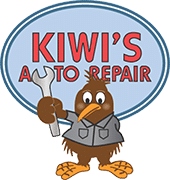If you just got your brake pads or rotors replaced and want to make sure they last as long as possible before needing to be serviced again, keep reading. The life expectancy of new brake components depends on several factors, most importantly, your driving habits. By being mindful of how you drive and performing some basic maintenance, you can extend the lifespan of your new brakes.
Inspect Regularly
One of the easiest things to do is perform regular inspections of your brakes. Every few weeks, take a moment to visually check the condition of your brake pads and rotors. Watch for any unusual wear patterns or debris buildup that could indicate a problem. Also, check your brake fluid level to ensure it hasn’t become low. Topping it off prevents moisture from accumulating inside the hydraulic system. Staying on top of minor issues now prevents expensive repairs down the road.
Avoid Excessive Heat
The number one enemy of brake components is heat. Exposing your brake system to extreme temperatures causes faster wear and reduces how efficiently they operate. You want to avoid situations that overheat the rotors and pads. Aggressive driving with sudden stops generates a tremendous amount of friction heat. Give yourself extra stopping distance so you don’t have to slam on the brakes as often. Also, be cautious about riding the brakes downhill for long periods. Continuously pressing lightly heats everything up without allowing components to cool off in between. Instead, brake firmly to reduce speed, then let off so air can pass over the rotors.
Stay Free of Debris
Road debris easily gets embedded in brake pads and scored into rotors. This third-party material accelerates wear each time you apply the brakes. Try to avoid driving through debris when possible, and don’t follow too closely behind vehicles prone to flinging rocks. Inspect and clean rotors any time you rotate your tires. Wiping both sides with brake cleaner removes oil and other contaminants. Immediately address new squeaks, grinding noises, or vibrations felt through the brake pedal. These symptoms likely indicate debris stuck somewhere in the calipers. Letting the problem persist damages other components. It takes only a few minutes for a technician to dislodge the debris. Invest that time now rather than replace pads and rotors prematurely later.
Prevent Corrosion Buildup
Road salts, humid climates, and even getting your vehicle washed can lead to corrosion on rotors and brake hardware. This rust buildup compromises braking power over time. After submerging through deep water or mud, make it a habit to lightly press the brake pedal a few times to wipe the rotors clean once you’re back on dry pavement. When washing your vehicle at home, avoid directing pressurized water streams directly onto brake components for long periods. After the wheels and undercarriage are cleaned, move the sprayer further back. Park with the tires turned so airflow passes evenly over all braking surfaces once finished. This dries them thoroughly.
Follow Recommended Service Intervals
While you can influence lifespan through driving habits, brake components still degrade over time, regardless of use. Rubber compounds in pads and seals gradually lose effectiveness. Rotors develop microscopic cracks that lead to pulsing. Sticking rigorously to recommended service intervals ensures all braking system components get evaluated before problems leave you stranded.
Extend the Life of Your Brakes
Getting the most from newly replaced brake components requires attentiveness behind the wheel coupled with routine inspections. Avoid excessive heat and debris that accelerate wear. Address minor issues promptly as well. Building good maintenance habits keeps your brake system operating safely for maximum mileage. When you eventually need components replaced again years down the road, the technicians at Kiwi’s Auto Repair are ready to get you back out cruising the back roads with fresh new brakes. Call (805) 307-3534 or stop by our auto repair shop in Santa Barbara to schedule an inspection.
